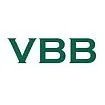On 9 February 2012, the Court of Justice of the European Union (the "ECJ") answered a preliminary question referred to it by the High Court of Justice of England and Wales (the "Referring Court") in Novartis AG ("Novartis") v. Actavis UK Ltd. ("Actavis") (Case C-442/11). The ECJ judgment offers guidance on the scope of supplementary protection certificates ("SPCs").
Novartis is a pharmaceutical company which obtained a patent for valsartan, an active ingredient that is mainly administered for the treatment of high blood pressure. Novartis markets Diovan®, a medicinal product with valsartan as its sole active ingredient, and Co-Diovan®, a medicinal product based on valsartan combined with the active ingredient hydrochlorothiazide. The patent for valsartan expired on 12 February 2011. However, Novartis was granted an SPC for valsartan on the basis of the patent for valsartan and the marketing authorisation obtained for Diovan®.
Despite the fact that Novartis had obtained this SPC, Actavis, a company involved in generic pharmaceuticals, announced that it would market a generic version of Co-Diovan® following the expiry of the patent for valsartan.
Novartis brought an action against Actavis before the Referring Court, arguing that if the generic of Co-Diovan® were to be marketed, this would infringe the rights granted by the SPC for valsartan. According to Novartis, the SPC for valsartan confers the same protection as the patent for valsartan pursuant to Article 5 of Regulation (EC) No 469/2009 of 6 May 2009 concerning the supplementary protection certificate for medicinal products (the "SPC Regulation"). This provision clarifies the effects of SPCs and provides that "subject to Article 4, the [SPC] is to confer the same rights as conferred by the basic patent and to be subject to the same limitations and the same obligations". Article 4 of the SPC Regulation provides that, within the limits of the protection granted by the basic patent, the protection conferred by an SPC only extends to the active ingredient or combination of active ingredients covered by the marketing authorisation for the corresponding medicinal product and for any use of this active ingredient or combination of active ingredients as a medicinal product which has been authorised before the expiry of the SPC.
In contrast, Actavis argued that the SPC only covers valsartan as a sole active ingredient. As a result, Actavis maintained that Novartis could not oppose the marketing of a medicinal product containing valsartan combined with another active ingredient on the basis of its SPC for valsartan.
The Referring Court stayed the proceedings and asked the ECJ to clarify whether a holder of an SPC for an active ingredient, who previously could rely on his patent for this active ingredient in order to act against the marketing of a medicinal product containing this active ingredient in combination with one or more other active ingredients, can invoke his SPC to oppose such marketing after the expiry of the basic patent.
Referring to its judgment in the Medeva Case (Case C-322/10 - See, this Newsletter, Volume 2011, No. 12, p.11), the ECJ held that, in accordance with Articles 4 and 5 of the SPC Regulation, an SPC for an active ingredient confers the same rights as were granted by the basic patent for that active ingredient, within the boundaries of the protection afforded by that patent. Consequently, the ECJ decided that the holder of an SPC for an active ingredient can invoke the protection conferred by this SPC against a medicinal product consisting of this active ingredient and one or more other active ingredients to the extent that this would have been possible under the basic patent for that active ingredient.
The content of this article is intended to provide a general guide to the subject matter. Specialist advice should be sought about your specific circumstances.

